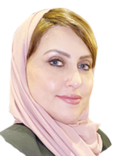A new semester for students has started in Saudi Arabia, and the Education Ministry has introduced a new subject to be taught in high school: Philosophy. In a recent interview on BBC Arabic in London, I shared my thoughts on this new addition.
First and foremost, why are all eyes on Saudi Arabia in anything we do lately, even if it has nothing to do with the international arena? Is this the consequence of being so popular that everything we do is now analyzed and questioned? Is it because of genuine interest about what is happening in the Kingdom, and wanting to learn more from our latest experiences and taking us as a role model for the rest of the Arab world?
Or is it because we were so out of the limelight and unopened to the outside world in the last couple of years that we have now become the talk of the town? I leave it to you, my readers, to choose which option or propose your own, as I am only here to stimulate your thinking.
The introduction of philosophy is a very positive step. Having said that, I realize that some may disagree with me and say this will raise more questions and debate about religious issues.
I think their concerns would be about philosophy dating back to the ages of Plato, his teacher Socrates, and Plato’s most famous student Aristotle, who were the founders of the first institution of higher learning in the Western world, and of Western philosophy. Those who are concerned may also ask how, since Saudi Arabia is considered an Islamic country, will philosophy be taught in our schools.
The Education Ministry released a framework of what will be taught as soon as news of philosophy’s introduction came out. As an educator, I went through the framework and was very happy to read what will be taught.
The ministry intends to teach the life skills required for the job market in the 21st century, including analytical, creative and critical thinking that will allow students to think for themselves rather than be spoon-fed. Hopefully this will put an end to the rote method, memorization and regurgitation for exams. It has nothing to do with religion at all, but rather the skills needed to be successful in a job.
I am not against reaching out and getting support or help from Western experiences or consultants, but we must have a local expert to adapt foreign expertise, experience and suggestions to our own Saudi culture in order for them to work and meet our objectives. Is that not the case with all countries, not just Saudi Arabia? We must adapt everything to our individual cultures, not just take anything as is.
• Dr. Taghreed Al-Saraj is a best-selling Saudi author, international public speaker and entrepreneurship mentor.












